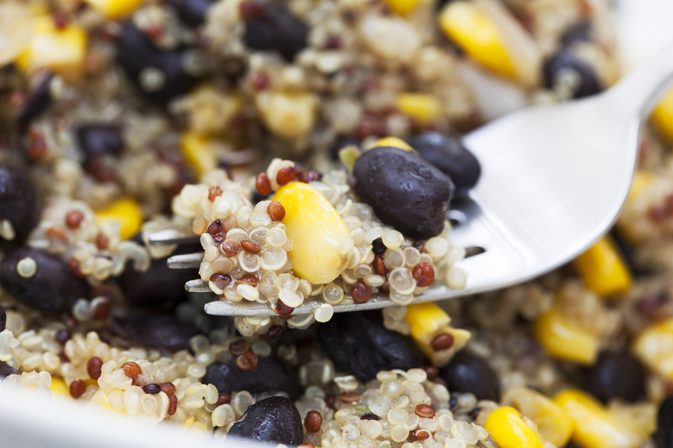Contents:
- Medical Video: MyProtein Impact Whey Protein REVIEW & MORE!!
- What is a microprotein?
- What are the benefits of mycoprotein?
- Low-fat and cholesterol mycoprotein
- High protein
- Mycoprotein is rich in fiber
- Low sodium
- Do mycoproteins have side effects?
Medical Video: MyProtein Impact Whey Protein REVIEW & MORE!!
Ever heard of microprotein-based foods? Mycoprotein is a high protein food ingredient which is currently being discussed by many experts. Because, on one side of the food these findings have good nutritional value, but it turns out there are still controversial things that appear in this material. Let's look at the reviews below.
What is a microprotein?

Mycoprotein is a type of single cell protein derived from fungi produced for consumption. Mycoprotein is made by fermentation of several types of microfungus, Fusarium venenatum. The fermented product is then mixed with egg white, wheat protein, and other ingredients.
This collection of fermented products is also processed into artificial meat that can be used as a substitute for meat by activists of the vegan diet.
Although it looks nutritious and popular as a vegetarian food, the protein findings are still controversial. Because, it is feared there will be substances that can trigger allergies or allergens in these food ingredients.
What are the benefits of mycoprotein?
Low-fat and cholesterol mycoprotein
In 100 grams of serving mycoprotein contains 85 calories. Of the total calories, only 26 calories are produced from 2.9 grams of total fat and 0.7 grams of saturated fat. Based on the University of London study, microproteins reduce cholesterol levels to 13 percent of bad cholesterol and increase 12 percent of good cholesterol
In addition, mycoprotein is a cholesterol-free protein. When compared with 1 piece of beef steak this is very much different.
By reducing fat, saturated fat and cholesterol, you will reduce the risk of heart disease and stroke.
High protein
Every 100 grams of myoprotein contains 11 grams of protein or can meet around 20 percent of protein requirements per day. The protein content in mycoprotein is also included in full.
That means, all types of amino acids (the smallest structure of protein) that the body needs are available in these mycoproteins. You could say mycoprotein has a content like skim milk, which is high in protein, but low in fat and cholesterol.
Because of its content, mycoprotein is considered to be a substitute for animal protein which can prevent the occurrence of chronic diseases.
If you usually eat too much animal protein can increase cholesterol levels, whereas if you consume a protein source from your cholesterol microprotein it remains stable and protein requirements are met.
Mycoprotein is rich in fiber
Reported on the Livestrong page, basically a diet that contains lots of fiber will help control blood pressure, prevent obesity, prevent cholesterol levels rise, and prevent diseases related to the digestive system.
Well, if you are on a high-fiber diet, mycoprotein can be the solution. Because, in 100 grams of myoprotein contains 6 grams of dietary fiber. This is more than ½ cup of cooked vegetables. This is quite high.
With the high fiber content in myoproteins, this can help meet the fiber needs of adult men as much as 17 percent, and help meet fiber needs in adult women as much as 21 percent a day.
Low sodium
In 100 grams of mycoprotein, it only contains 5 mg. That means, mycoprotein has the advantage of being safe for people who have high blood pressure, or are preventing a stroke.
So, it is not surprising that some people have already studied this mycoprotein, and made it as a substitute for meat that has higher sodium content.
Do mycoproteins have side effects?
Although mycoprotein is known to have several health benefits, there are also some side effects that can be caused.
Most of those who complain of experiencing symptoms of vomiting, nausea, diarrhea, while some other cases have reported having experienced fainting, the discovery of blood in feces or a severe allergic reaction.
Some other foods such as shellfish, oats, peanuts, and others do indeed trigger allergies, but are different from mycoproteins.
Allergens in mycoprotein are not known to be certain, so many people don't finally know that they are allergic to mycoproteins. Therefore, allergic reactions from mycoprotein are always detected late, and have shown severe symptoms.














